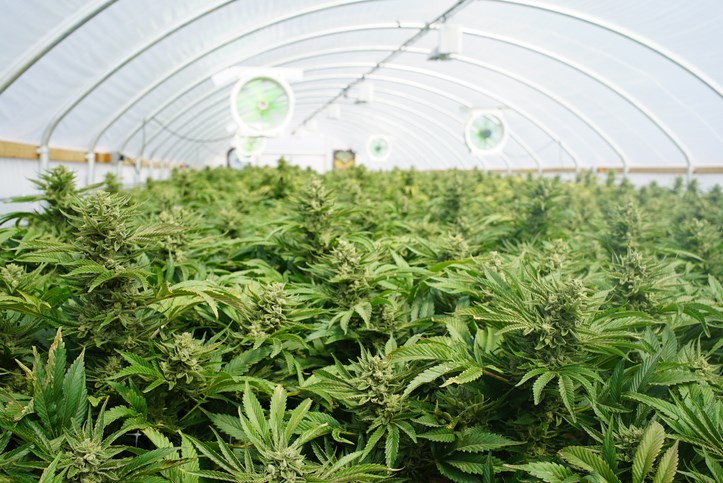Marijuana has been legal in Canada for just over one and a half years.
The notion of establishing a framework to commercialize cannabis began as a promise by the Liberal Party in the 2015 federal election campaign that led to Justin Trudeau becoming prime minister. The implementation of the policy was not as smooth as first envisioned, and the provincial governments were put in charge of setting guidelines for the sale and consumption of marijuana.
Research Co. and Glacier Media have been tracking perceptions about legalization every six months in British Columbia. Our latest survey shows that agreement with the new rules remains high across the entire province, that some residents are starting to ponder a future when other drugs could be treated in the same fashion as cannabis, and that—in stark contrast with what we found last year—marijuana users in British Columbia are starting to acquire all of their product through licensed retailers.
As more time passes, British Columbians appear happier with the decision to end prohibition. Seven in 10 of the province’s residents (70 per cent) agree with marijuana being legal in Canada, while 26 per cent disagree and three per cent are undecided.
These findings represent a seven-point increase since a similar survey conducted in October 2019, as legal cannabis approached its first anniversary. The groups that are more likely to voice satisfaction with the new status quo are men (75 per cent), British Columbians aged 35 to 54 (76 per cent) and residents of northern B.C. (80 per cent).
In recent weeks, we have seen more talk about creating a safe supply for drugs that are currently available only through illegal means. The impact of these discussions has led to a shift in the views of British Columbians about legalizing all drugs. It must be completely acknowledged that sizable majorities of the province’s residents continue to oppose a move to place any controlled substance inside a store, but the proponents of this option have grown since late last year.
At least two-thirds of British Columbians are opposed to legalizing ecstasy (66 per cent), powder cocaine (70 per cent), heroin (72 per cent), crack cocaine (73 per cent), methamphetamine or “crystal meth” (74 per cent) and fentanyl (75 per cent).
Support for making some of these drugs available in a fashion that would conceivably meet the same guidelines that govern cannabis has risen over the past six months, to 25 per cent for cocaine (up from 18 per cent) and to 24 per cent for heroin (up from 19 per cent. While these are still low proportions, the fluctuation could signal the start of a trend.
Just 10 per cent of British Columbians say they only consumed marijuana after it became legal. Identical proportions of residents tried it before October 2018 (45 per cent) or have never consumed it in Canada (also 45 per cent). The incidence of “legal-only” marijuana users is highest among residents aged 18 to 34 (18 per cent) and those who live in southern B.C. (19 per cent).
But perhaps the biggest surprise, and a source of satisfaction for policy makers, is the way in which cannabis is being sought by users. Just over half of British Columbians who have consumed marijuana since legalization (51 per cent) say that all of their product was acquired at a licensed retailer. In October 2019, only 31 per cent of cannabis consumers in the province were getting all of their product at a licensed retailer.
We still see 16 per cent of British Columbians who say none of their marijuana has been bought at a licensed retailer—a proportion that climbs to 25 per cent among those aged 55 and over. Two-thirds of cannabis consumers aged 35 to 54 (68 per cent) are buying all of their product at a licensed retailer.
Even though the delivery of cannabis products has improved over the past six months, there are significant regional differences that are indubitably related to the presence of stores in specific areas of the province. Cannabis consumers who reside in southern B.C. and Metro Vancouver are the most likely to be getting all of their product from licensed retailers (63 per cent and 62 per cent). The numbers are significantly lower in Vancouver Island (29 per cent), northern B.C. (24 per cent) and the Fraser Valley (19 per cent).
Finally, the issue of “drug testing” remains a priority for British Columbians, with 61 per cent saying that companies in the province should “definitely” or “probably” be able to administer these examinations to any employee now that marijuana is legal.
After a bumpy start that featured slow store openings and hitches with delivery options, there are signs that cannabis legalization is starting to work in a better fashion. More consumers are getting all of their product through licensed retailers, and the number of “new users” has not increased dramatically. Still, the significant regional disparities suggest that more marijuana outlets will need to be authorized in order to effectively eliminate the black market.
Mario Canseco is president of Research Co.
Results are based on an online study conducted from July 10 to July 12, 2020, among 800 adult British Columbians. The data has been statistically weighted according to Canadian census figures for age, gender and region in British Columbia. The margin of error, which measures sample variability, is plus or minus 3.5 percentage points, 19 times out of 20.




